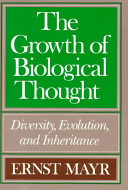Changing Your Mind is a Virtue
All interpretations made by a scientist are hypotheses, and all hypotheses are tentative. They must forever be tested and they must be revised if found to be unsatisfactory. Hence, a change of mind in a scientist, and particularly in a great scientist, is not only not a sign of weakness but rather evidence for continuing attention to the respective problem and an ability to test the hypothesis again and again.
Notes:
It shows you're paying attentions and are flexible to new evidence.
Folksonomies: virtue hypotheses
Taxonomies:
/health and fitness (0.231712)
/business and industrial (0.209634)
/business and industrial/biomedical (0.158048)
Keywords:
great scientist (0.982487 (positive:0.430380)), new evidence (0.975397 (positive:0.902011)), respective problem (0.913673 (neutral:0.000000)), hypotheses (0.756595 (neutral:0.000000)), mind (0.602503 (positive:0.902011)), Virtue (0.577962 (positive:0.902011)), weakness (0.569353 (neutral:0.000000)), interpretations (0.549576 (neutral:0.000000)), hypothesis (0.542704 (neutral:0.000000)), attention (0.530899 (neutral:0.000000)), ability (0.521833 (neutral:0.000000)), attentions (0.516504 (positive:0.902011)), change (0.502787 (neutral:0.000000))
Entities:
scientist:JobTitle (0.864303 (positive:0.430380))
Concepts:
Null hypothesis (0.932889): dbpedia | freebase
Psychology (0.856513): dbpedia | freebase | opencyc
Experiment (0.755907): dbpedia | freebase | opencyc






